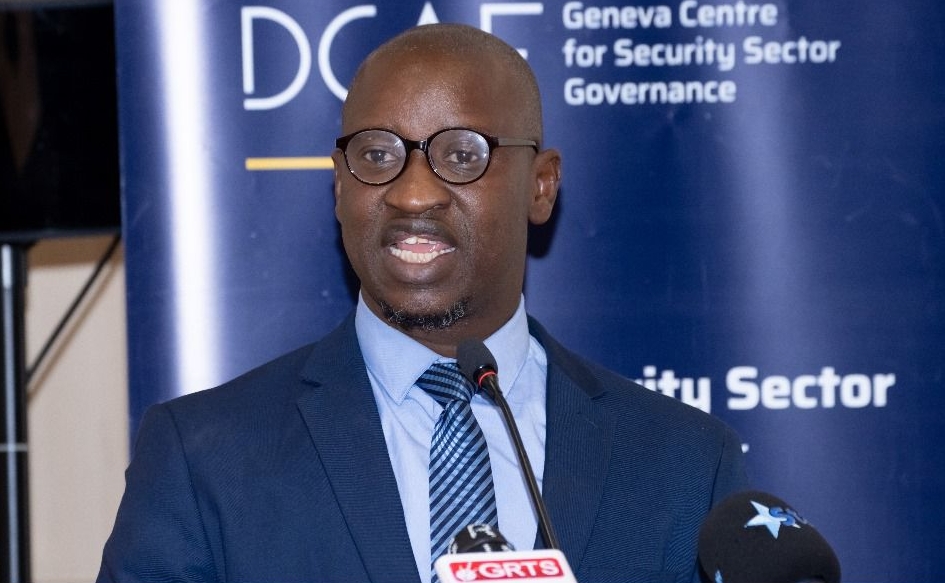Gambiaj.com – (Banjul, The Gambia) – Former spokesperson of The Gambia Police Force, David Kujabi, has cautioned that the arrest and prosecution of young people for peaceful protests risk aggravating tensions in the country’s fragile democracy rather than maintaining public order.
In a detailed reflection published after his recent Facebook post stirred debate, Kujabi argued that the strict enforcement of the colonial-era Public Order Act—without taking into account The Gambia’s political and socio-economic realities—undermines fairness, democratic policing, and peacebuilding.
His remarks follow the arrest of 24 young Gambians who staged a demonstration at the Public Utilities Regulatory Authority (PURA) without a permit. While some applauded the police for upholding the law, others criticized the move as heavy-handed.
Kujabi, who has studied peace, conflict, and development, said the issue must be seen through the lens of conflict sensitivity, youth inclusion, and democratic policing. He warned that punishing youths for peacefully voicing grievances risks reinforcing their alienation.
“An important factor to consider is whether punishing youths for peacefully demanding accountability promotes public order or deepens perceptions of injustice,” he wrote.
Outdated Law, Growing Calls for Reform
The Public Order Act, first introduced in 1961, gives police and regional governors discretion to approve or deny public assemblies.
Though upheld by the Supreme Court in 2017 as a “reasonable limitation” on free assembly, it has long faced criticism from the Truth, Reconciliation, and Reparations Commission (TRRC), the National Human Rights Commission (NHRC), and civil society groups.
They have urged that the law be amended to replace the permit system with a notification system that recognizes peaceful assembly as a constitutional right.
Conflict Risks Highlighted if Youth Not Seen as Peacebuilders
Kujabi referenced the Conflict and Development Analysis (CDA 2024), launched by the West African Network for Peacebuilding, which highlights youth marginalization, economic vulnerability, political polarization, and weak state-citizen trust as major drivers of instability in The Gambia.
According to the CDA, arresting youths for peaceful protests not only exacerbates exclusion but also risks aggravating political divisions and eroding public confidence in state institutions.
Kujabi further noted that the National Action Plan on Youth, Peace, and Security (2025–2030) positions youth as central to peacebuilding, echoing the United Nations’ call for youth inclusion in decision-making.
Criminalizing their activism, he said, contradicts national and international commitments to engage young people as partners in development.
Call for Preventive Policing
Quoting the Gambia Police Force’s Community Policing Training Manual, Kujabi stressed that effective policing should emphasize dialogue, prevention, and proportionality, not just enforcement.
He argued that dialogue with protesters would have been more consistent with democratic policing principles than mass arrests.
“By resorting to mass arrests, the state risks alienating an already marginalized youth majority, eroding trust in law enforcement, deepening political polarization, and diverting attention from systemic issues like corruption and poor service delivery,” he warned.
Kujabi concluded that The Gambia’s democratic transition demands tactful and preventive policing rather than reliance on outdated laws. He called for reform of the Public Order Act, stronger community policing, and recognition of young people as “indispensable partners in peace and development.”










